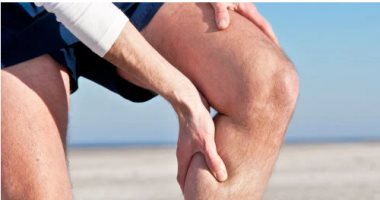Leg muscle spasm is a common disease and is also called “Charlie’s horses”, a common and somewhat mysterious pain that occurs when muscles are involuntary lycées and cannot relax and tend to occur frequently as we age, and whether it is pain in the day or night, can cramp the muscles of the foot and leg as well as other different muscles in your body.
Causes of leg muscle spasm
Causes of leg muscle spasm include:
Lack of hydration: If you have cramps, it’s important to look at moisturizing your body first and make sure you drink enough water throughout the day.
Nutrition problems: While the balance of electrolytes (calcium, sodium, potassium and magnesium) is essential for muscle contraction and relaxation, it is better not to self-medicate with supplements instead eating a variety of foods, including lots of colorful fruits and vegetables such as leafy vegetables and bananas to add electrolytes to your diet.
Side effects of medications: Some medications such as statins and diuretics can cause muscle cramps the warning is when contractions suddenly start after you start taking a new drug.
Not doing enough stretching exercises: Taking some time to stretch can help you every day to want your muscles to be as strong as possible.
Fatigue: If you exercise stronger than usual or have muscle fatigue, it can lead to cramps.
Poor circulation: If you have contractions that get worse when walking, a circulatory problem may cause some circulatory problems to cause pain-like cramps. If things get worse when you walk, or if you have contractions that don’t stop, definitely see your doctor
Wrong shoes: The lesser known cause of muscle contractions is your shoes look at your shoes, especially if you change them from flat shoes to high heels, because this can cause contractions.””
Causes of leg muscle spasm and treatment 1treatment of leg and foot muscle spasm
There are some simple ways to treat leg and foot cramps:
If this happens while lying down, simply try to stand up and put some weight on the injured leg or foot.
Using heating pads to increase and relax the circulation of muscles can also help soak in a warm tub of English salt to relieve stress.
You can try non-steroidal anti-inflammatory drugs, such as ibuprofen.
Stretching and stretching exercises.
